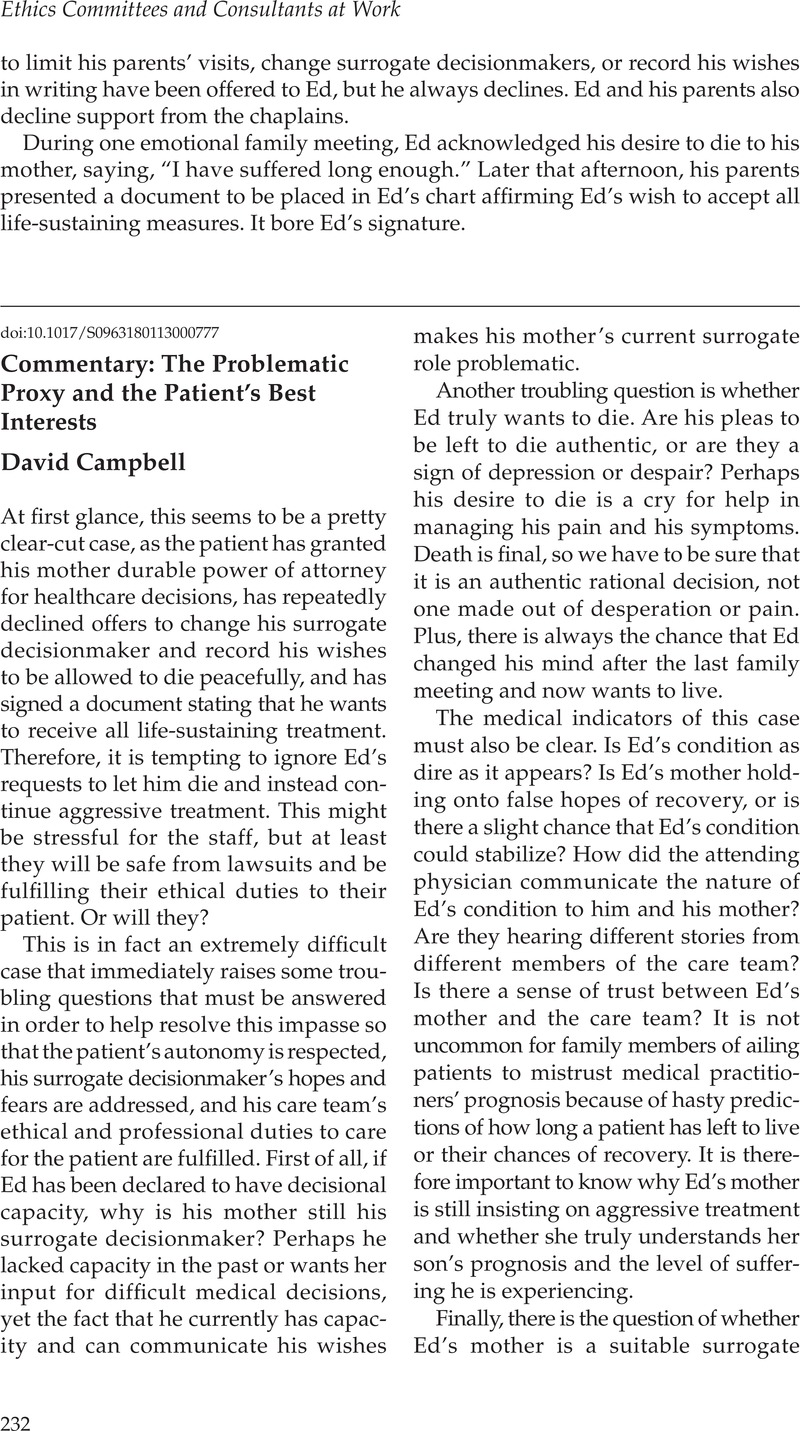No CrossRef data available.
Published online by Cambridge University Press: 05 February 2014

1. Jonsen, AR, Siegler, M, Winslade, WJ. Clinical Ethics: A Practical Approach to Ethical Decisions in Clinical Medicine. 2nd ed. New York: MacMillan; 1986, at 82.Google Scholar
2. Shalowitz, DI, Garrett-Mayer, E, Wendler, D. The accuracy of surrogate decision makers: A systematic review. Archives of Internal Medicine 2006;166:493–7CrossRefGoogle ScholarPubMed; Fagerlin, A, Danks, J, Ditto, PH, Houts, RM, Sucker, WD. Projection in surrogate decisions about life-sustaining medical treatments. Health Psychology 2001;20:166–75.Google Scholar
3. Vig, EK, Taylor, JS, Starks, H, Hopely, EK, Fryer-Edwards, K. Beyond substituted judgment: How surrogates navigate end-of-life decision-making. Journal of the American Geriatrics Society 2006;54:1688–93.Google Scholar
4. Fritch, J, Petronio, S, Helft, PR, Torke, A. Making decisions for hospitalized older adults: Ethical factors considered by family surrogates. Journal of Clinical Ethics 2013;24:125–34.CrossRefGoogle Scholar
5. Rhodes, R, Holzman, I. The not unreasonable standard for assessment of surrogates and surrogate decisions. Theoretical Medicine and Bioethics 2004;25:367–86.Google Scholar
6. Brush, DR, Brown, CE, Caleb, AG. Critical care physicians’ approaches to negotiating with surrogate decision makers: A qualitative study. Critical Care Medicine 2012;40:1080–7.CrossRefGoogle ScholarPubMed
7. Baeroe, K. Patient autonomy, assessment of competence and surrogate decision-making: A call for reasonableness in deciding for others. Bioethics 2010;24:87–95.Google Scholar
8. Brock, DW. The ideal of shared decision making between physicians and patients. Kennedy Institute of Ethics Journal 1991;1:28–47.Google Scholar